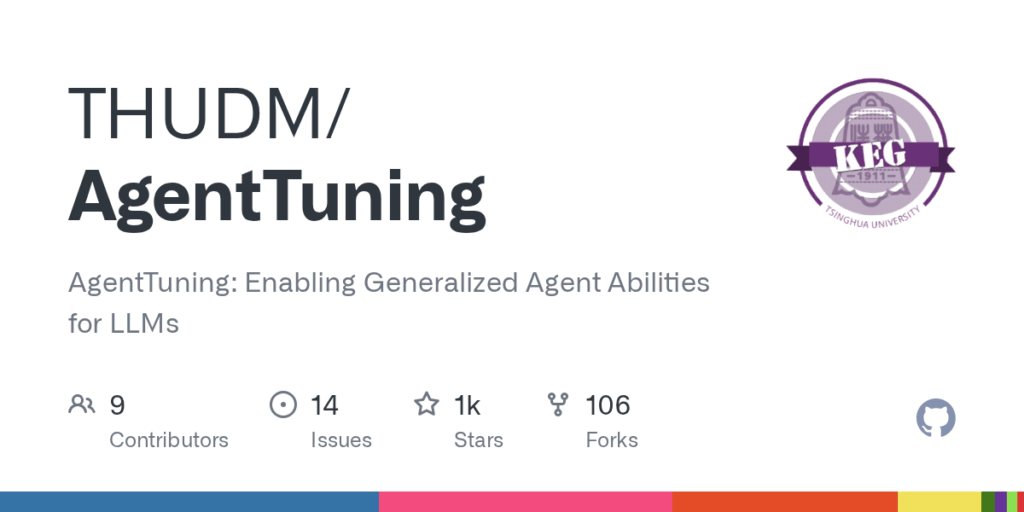AgentTuning
Basic Information
AgentTuning is a research and engineering repository that demonstrates instruction-tuning of large language models using entire interaction trajectories to enable generalized agent abilities. The project packages a curated interaction dataset called AgentInstruct, pretrained models named AgentLM (available in 7B, 13B, and 70B sizes), and evaluation tooling to measure performance on both seen and unseen agent tasks. The repository includes code and instructions to run inference via a Text-Generation-Inference (TGI) Docker setup, example client requests, and evaluation scripts for general benchmarks. Its main purpose is to provide resources for developing, reproducing, and evaluating LLMs tuned specifically for sequential multi-step agent behaviors while retaining general language capabilities.








